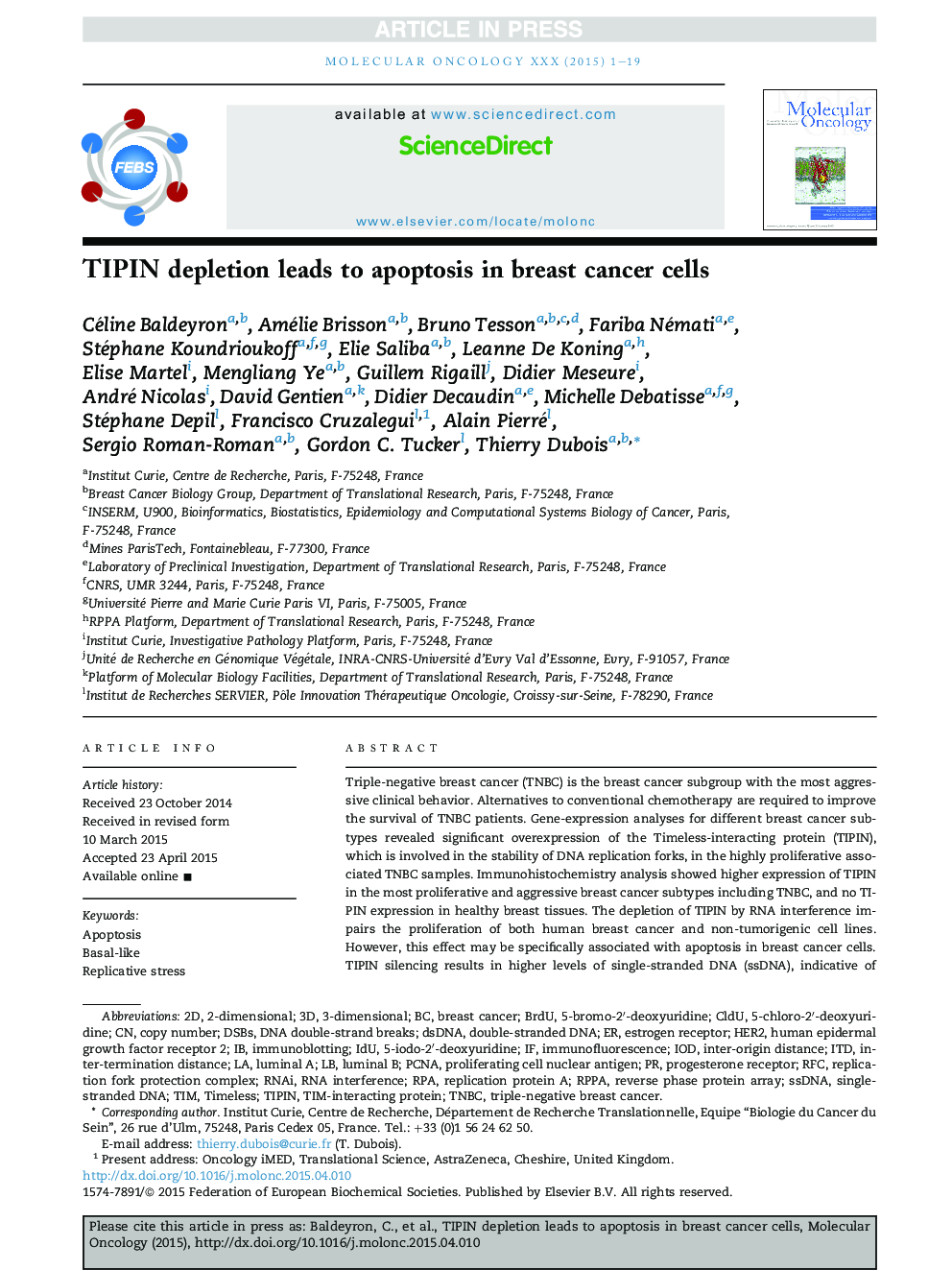| Article ID | Journal | Published Year | Pages | File Type |
|---|---|---|---|---|
| 10914702 | Molecular Oncology | 2015 | 19 Pages |
Abstract
Triple-negative breast cancer (TNBC) is the breast cancer subgroup with the most aggressive clinical behavior. Alternatives to conventional chemotherapy are required to improve the survival of TNBC patients. Gene-expression analyses for different breast cancer subtypes revealed significant overexpression of the Timeless-interacting protein (TIPIN), which is involved in the stability of DNA replication forks, in the highly proliferative associated TNBC samples. Immunohistochemistry analysis showed higher expression of TIPIN in the most proliferative and aggressive breast cancer subtypes including TNBC, and no TIPIN expression in healthy breast tissues. The depletion of TIPIN by RNA interference impairs the proliferation of both human breast cancer and non-tumorigenic cell lines. However, this effect may be specifically associated with apoptosis in breast cancer cells. TIPIN silencing results in higher levels of single-stranded DNA (ssDNA), indicative of replicative stress (RS), in TNBC compared to non-tumorigenic cells. Upon TIPIN depletion, the speed of DNA replication fork was significantly decreased in all BC cells. However, TIPIN-depleted TNBC cells are unable to fire additional replication origins in response to RS and therefore undergo apoptosis. TIPIN knockdown in TNBC cells decreases tumorigenicity in vitro and delays tumor growth in vivo. Our findings suggest that TIPIN is important for the maintenance of DNA replication and represents a potential treatment target for the worst prognosis associated breast cancers, such as TNBC.
Keywords
ssDNADSBsIODIdURFCTIMITDdsDNARPPAHER2CldURPATNBCLuminal APCNA3-dimensional5-bromo-2′-deoxyuridine5-Iodo-2′-deoxyuridineSingle-stranded DNADNA double-strand breaksdouble-stranded DNARNA interferenceRNAireverse phase protein arrayProliferating Cell Nuclear Antigenreplicative stressImmunoblottingImmunofluorescencebasal-likeTIMELESSBrdUreplication protein AApoptosis2-dimensionalBreast cancerTriple-negative breast cancerCopy numberLuminal BTherapeutic targetEstrogen receptorHuman epidermal growth factor receptor 2Progesterone receptor
Related Topics
Life Sciences
Biochemistry, Genetics and Molecular Biology
Cancer Research
Authors
Céline Baldeyron, Amélie Brisson, Bruno Tesson, Fariba Némati, Stéphane Koundrioukoff, Elie Saliba, Leanne De Koning, Elise Martel, Mengliang Ye, Guillem Rigaill, Didier Meseure, André Nicolas, David Gentien, Didier Decaudin, Michelle Debatisse,
